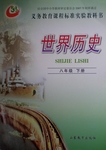Many of us have heard stories about teachers who can “see” into a student’s future. Even if a student is not performing well, they can predict success. We are convinced that this ability, this gift, is evidence that they were “called to teach.” If the gift of sight is evidence, how greater must be the gift of touch. I have a story.
I grew up in the fifties in a poor African American neighborhood in Stockton, California, that had neither sidewalks nor an elementary school. Each day, always in groups at our parents’ insistence, my friends and I would leave home early enough to walk eight blocks to school and be in our seats when the bell rang. For four blocks, we walked on dusty roads. By the fifth block, we walked on sidewalks that led to lovely homes and to Fair Oaks Elementary School. It was at Fair Oaks, in a sixth grade English class, that I met Ms. Victoria Hunter, a teacher who had a huge influence on my life.
During reading periods, she would walk around the room, stop at our desks, stand over us for a second or two, and then touch us. Without saying anything to us (nothing could break the silence of reading periods), she would place two fingers lightly on our throats and hold them there for seconds. I learned many years later when I was a student at Stanford University that teachers touch the throat of students to check for sub-vocalization (默读), which slows down the reading speed. I did not know at the time why Ms. Hunter was touching our throats, but I was a serious and respectful student and so, during silent reading period, I did what Ms. Hunter told us to do. I kept my eyes on the material I was reading and waited for her to place her fingers lightly on my throat.
One day, out of curiosity, I raised my head from my book — though not high — so that I could see Ms. Hunter, a white woman from Canada, moving up and down the rows, stopping at the desks of my classmates. I wanted to see how they reacted when she touched their throats. She walked past them. I was confused. Did she pass them by because they were model students? What did we, the students who were touched, not do right? I sat up straighter in my chair, thinking that my way of sitting might be the problem. I was confused. Several days later, I watched again, this time raising my head a little higher. Nothing changed. Ms. Hunter touched the same students. Always, she touched me.
She touched me with her hands. She also touched me with her belief in my ability to achieve. She motivated me by demanding the best from me and by letting teachers I would meet in junior high school know that I should be challenged, that I would be serious about my work. I am convinced that she touched me because she could “see” me in the future. That was true of all of us at Fair Oaks who sat still and silent as Ms. Hunter placed her fingers lightly on our throats. We left Fair Oaks as “best students,” entered John Marshall Junior High School, finished at the top of our high school class, and went on to earn graduate degrees in various subjects. Ms. Hunter saw us achieving and she touched us to make certain that we would.
I was not surprised that she came to my graduation ceremony at Edison High School in Stockton or that she talked to me about finishing college and earning a Ph. D. She expected that of me. She gave me a beautifully wrapped box. Inside was a gift, the beauty of which multiplies even as it touches me:
a necklace to which I can add charms for each stage of my life.小题1:According to the writer, what is a special ability many good teachers possess?
| A.The ability to make all students behave well. |
| B.The ability to treat different students in the same way. |
| C.The ability to discover a student’s potential to succeed. |
| D.The ability to predict the near future of a poor student. |
小题2:When she saw Ms. Hunter walk past some students without touching their throats, the writer felt ______.
| A.disturbed | B.puzzled | C.ashamed | D.annoyed |
小题3:What does the writer mean by “a necklace to which I can add charms for each stage of my life” (paragraph 6)?
| A.A gift which encourages me to do well on the journey of my life. |
| B.A gift which becomes more and more valuable as time goes by. |
| C.A necklace which I wear on all important occasions in my life. |
| D.A necklace which suits me and adds to my charm. |
小题4:Which of the following serves as the best title for the story?
| A.Ms. Hunter’s Surprise | B.Ms. Hunter’s Challenge |
| C.A Teacher’s Touch | D.A Teacher’s Memory |



 探究与巩固河南科学技术出版社系列答案
探究与巩固河南科学技术出版社系列答案